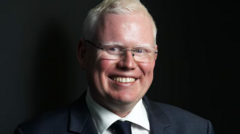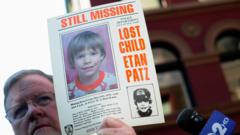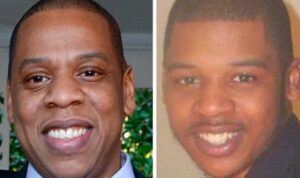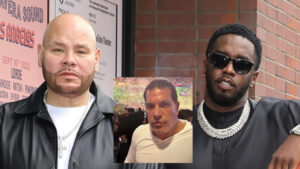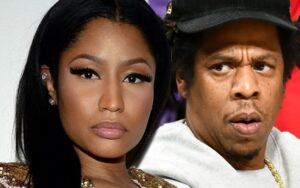Dua Lipa's legal battle over her iconic track "Levitating" has seen her win a copyright case, reinforcing her creative integrity while navigating industry challenges.
Dua Lipa Prevails in Levitating Copyright Lawsuit

Dua Lipa Prevails in Levitating Copyright Lawsuit
Dua Lipa successfully defends against copyright claims regarding her hit song "Levitating," a ruling emphasizing the commonality of musical elements.
In a significant ruling delivered by US Judge Katherine Polk Failla, pop star Dua Lipa has triumphed in a lawsuit that accused her of copying elements from two older songs in her hit single "Levitating." The suit was brought forth by songwriters L Russell Brown and Sandy Linzer, who claimed that Lipa's track bore similarities to their 1979 disco tune "Wiggle and Giggle All Night" and the 1980 song "Don Diablo."
The judge’s decision, issued Thursday, pointed out that the similarities amounted to generic musical elements not qualifying for copyright protection—elements that have been utilized across various eras and genres, including by renowned figures like Mozart and in the Bee Gees' classic "Stayin' Alive." This victory marks the second instance where Lipa has successfully defended "Levitating" against copyright infringement claims. Previously, the Florida-based reggae band Artikal Sound System had alleged that Lipa had lifted the chorus of her song from their 2015 track "Live Your Life." That lawsuit was dismissed earlier this year due to a lack of evidence proving that Lipa had access to their work, a critical component of establishing copyright infringement.
However, despite her current success, Lipa is still grappling with another legal challenge regarding "Levitating." Musician Bosko Kante, who contributed vocals to the track through a talk box, has filed a suit claiming that his contributions were used in remixes of the song without his consent. Kante is seeking damages upwards of $2 million, along with additional profits he estimates from the remixes to be around $20 million.
Brown and Linzer's lawsuit had specifically argued that the opening melody of "Levitating," where Lipa sings "If you wanna run away with me, I know a galaxy and I can take you for a ride," was a direct duplicate of their musical work. In response, Judge Failla noted that such elements are too commonplace to warrant legal protection. "The court finds that a musical style, defined by plaintiffs as 'pop with a disco feel,' and a musical function...cannot possibly be protectable," she stated, emphasizing the importance of allowing the growth of musical genres.
Coincidentally, this decision arrives on the fifth anniversary of "Levitating," which was initially released as part of Lipa's award-winning album "Future Nostalgia." Following the ruling, lawyers for Brown and Linzer expressed their intention to appeal the decision, indicating ongoing tension within the music industry regarding copyright and artistic expression. The BBC has reached out to Dua Lipa for comments regarding the ruling.
The judge’s decision, issued Thursday, pointed out that the similarities amounted to generic musical elements not qualifying for copyright protection—elements that have been utilized across various eras and genres, including by renowned figures like Mozart and in the Bee Gees' classic "Stayin' Alive." This victory marks the second instance where Lipa has successfully defended "Levitating" against copyright infringement claims. Previously, the Florida-based reggae band Artikal Sound System had alleged that Lipa had lifted the chorus of her song from their 2015 track "Live Your Life." That lawsuit was dismissed earlier this year due to a lack of evidence proving that Lipa had access to their work, a critical component of establishing copyright infringement.
However, despite her current success, Lipa is still grappling with another legal challenge regarding "Levitating." Musician Bosko Kante, who contributed vocals to the track through a talk box, has filed a suit claiming that his contributions were used in remixes of the song without his consent. Kante is seeking damages upwards of $2 million, along with additional profits he estimates from the remixes to be around $20 million.
Brown and Linzer's lawsuit had specifically argued that the opening melody of "Levitating," where Lipa sings "If you wanna run away with me, I know a galaxy and I can take you for a ride," was a direct duplicate of their musical work. In response, Judge Failla noted that such elements are too commonplace to warrant legal protection. "The court finds that a musical style, defined by plaintiffs as 'pop with a disco feel,' and a musical function...cannot possibly be protectable," she stated, emphasizing the importance of allowing the growth of musical genres.
Coincidentally, this decision arrives on the fifth anniversary of "Levitating," which was initially released as part of Lipa's award-winning album "Future Nostalgia." Following the ruling, lawyers for Brown and Linzer expressed their intention to appeal the decision, indicating ongoing tension within the music industry regarding copyright and artistic expression. The BBC has reached out to Dua Lipa for comments regarding the ruling.



